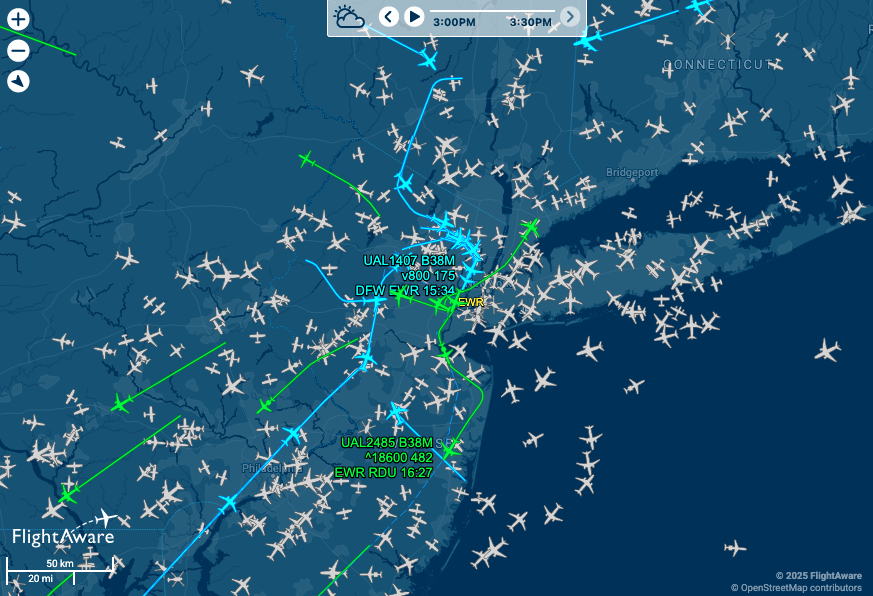Air Traffic Controllers Take Second Jobs to Survive Amid U.S. Government Shutdown

As the U.S. government shutdown enters its third week, air traffic controllers—deemed essential workers—are being forced to take on second jobs to make ends meet while working grueling six-day, 60-hour shifts without pay.
Nick Daniels, president of the National Air Traffic Controllers Association (NATCA), told Fortune that many controllers are now driving for Uber or DoorDash, waiting tables, or taking other side jobs just to cover basic expenses. “To think that somehow we can live with, ‘You’ll get paid eventually,’ that doesn’t pay the creditors, that doesn’t pay the mortgage, that doesn’t pay gas, that doesn’t pay the food bill,” Daniels said. “No one takes IOUs, and air traffic controllers are having to feel that pressure as well.”
Air traffic controllers, who are required to continue working during the shutdown, received a partial paycheck on October 14 for work completed before the government funding lapse, but will receive nothing for subsequent pay periods until a new budget is approved. The financial strain is especially severe for newly graduated controllers from the FAA Academy in Oklahoma City, many of whom were relocated across the country with no income guarantee.
The NATCA union, representing over 20,000 aviation safety professionals, is negotiating with financial institutions to offer no-interest loans to affected members. Meanwhile, controllers at major airports have been receiving donated meals from airline crews and international colleagues. Pilots from Alaska Airlines delivered pizzas to controllers at San Francisco International Airport, while air traffic workers from Canada and Australia have also sent food and messages of support.
The situation is exacerbating an already critical staffing shortage. The U.S. aviation system has struggled for over a decade to recruit and train enough controllers, with 91% of control centers operating below the FAA’s recommended staffing levels even before the shutdown. Transportation Secretary Sean Duffy recently confirmed that staffing in some areas has been reduced by up to 50%, partly due to fatigue and workers calling in sick.
Flight delays and cancellations are on the rise. On Sunday Oct. 19, more than 7,850 flights were delayed and 117 canceled nationwide, according to FlightAware. Over a one-week period earlier this month, 53% of the 23,000 recorded delays were attributed to staffing shortages—up from the typical 5%.
The ongoing government shutdown, now the third-longest in U.S. history, is disrupting air travel, public services, and household budgets across the country. Daniels warned that continued financial strain on air traffic controllers could threaten morale and operational efficiency across the aviation system.
“Controllers didn’t cause this shutdown,” he said. “Only elected officials can end it—and the American people need to demand they do so now.”
Related News: https://airguide.info/?s=FAA, https://airguide.info/category/air-travel-business/travel-health-security/
Sources: AirGuide Business airguide.info, bing.com, yahoo.com
